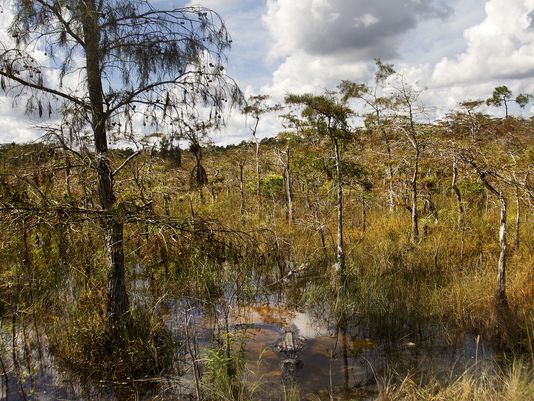ttp://www.santacruzsentinel.com/santacruz/ci_25801873/santa-cruz-county-first-ban-fracking
Unanimous vote prohibits underground oil production
By Jason Hoppin
jhoppin@santacruzsentinel.com @scnewsdude on Twitter
POSTED: 05/20/2014 03:02:54 PM PDT

Fracking ban supporters celebrate on the courthouse steps after Santa Cruz County Supervisors…
Adding another trophy to a case full of environmental firsts, the county of Santa Cruz on Tuesday banned fracking, becoming the only one in California to do so.
The unanimous 5-0 vote by the Board of Supervisors came without objection, and places Santa Cruz County at the vanguard of a growing number of cities and counties weighing constraints on the controversial oil development method, even as the state readies stricter new rules governing the industry.
“This is a historic decision and it’ll be looked back on as visionary. And it will hopefully spur other counties to do similar things, and to prevent harm before it happens,” said Joy Hinz, a Scotts Valley resident.
SYMBOLIC MOVE
The move, however, is largely symbolic: There are no known oil leases in Santa Cruz County, nor has it been targeted by oil prospectors. Fewer than a dozen people spoke to the board before Tuesday’s vote, which was followed by a small rally outside the County Governmental Center.
While the state regulates underground wells, Tuesday’s vote bans above-ground production support facilities. In doing so, the new law echoes a similar local effort from the 1980s to ban facilities for offshore oil drilling, an effective regulatory tool that became a model for coastal communities across California.
Fracking involves extracting previous untapped sources of oil and gas by injecting a slurry of water, sand and chemicals into wells, creating fracture in underground rock formations. Boom towns have been erected on barren plains, bringing with them controversy over what kind of long-term damage is being done to the environment.
The issue has moved to the fore on the Central Coast because of the Monterey Shale, a vast rock formation lying more than a mile underground that extends south through the San Joaquin Valley. The U.S. Energy Information Agency estimates it to hold nearly 14 billion barrels of untapped oil.
The county ban covers all oil development, and Supervisor John Leopold, the architect of the law, cited the environmental and health risks. While fracked wells use water located far below drinking water aquifers, among Leopold’s concerns is that wells could be breached and contaminate scarce local supplies.
“Since we’ve been considering this, I’ve heard from colleagues from around the state wanting to know what we were doing, trying to figure out the strategy, concerned about the prevalence of this practice here in California. It’s important for Santa Cruz to take a stand,” Leopold said.
THE OTHER SIDE
Sabrina Lockhart, a spokeswoman for Californians for a Safe, Secure Energy Future, a coalition of business and taxpayer groups that formed last month, said the industry not only supplies oil to California, but jobs as well.
Fracking has been a part of the state’s oil industry since the 1950s, and oil now provides 468,000 jobs and $40 billion in personal income, as well as $21 billion in state and local taxes, Lockhart said.
Citing a study by Fresno State, Lockhart said the Monterey Shale could add thousands more jobs and billions more in income and tax revenues, pointing out the state is in the process of enacting new rules on chemical disclosure, well-integrity and drinking water testing, and landowner notification.
Environmentalists’ true goal, she added, is to shut down the state’s oil industry.
“They’re using fear rather than facts to scare the public. They’re using hydraulic fracturing as a Trojan horse to ban all oil production,” Lockhart said.
Butte, Santa Barbara and San Benito counties are all considering fracking bans. Beverly Hills also recently passed a ban, becoming the first city to do so.
The grassroots activism is being driven, in part, by environmentalists’ frustration with the state Legislature, and especially Gov. Jerry Brown, for not taking a tougher stand on the issue. Last year, Brown signed a new law that not only toughens fracking rules, but also calls for an statewide environmental impact report on the practice.
Asked on CNN recently why he continued to allow fracking given the state’s drought problems, Brown pointed out that California is a leading consumer of oil, and that the state has a long history with domestic production that relies heavily on fracking.
“We’re not going to shut down a third of our oil production and force more oil coming from North Dakota, where they are fracking a lot more, and coming by train or boats or ships from all over the world,” Brown said.
Dan Haifley, executive director of the O’Neill Sea Odyssey, was instrumental in passing the local ban on offshore drilling. He pointed out that while the ban is symbolic, it also acts as a safeguard against an uncertain future.
Furthermore, Haifley saw it as the beginning of local municipalities taking the lead on the issue.
“This is very similar to the effort to ban plastic bags city by city, county by county, because it was felt that in Sacramento no progress can be made,” Haifley said. “This is taking matters into your own hands.”
Local residents who backed the ban are also thinking big.
“I consider the whole idea of fracking to be an insanity, especially in a state where drought is such a problem,” said Live Oak resident Carol Beatty. “My vision is for (the ban) to spread throughout the whole state and throughout the whole country.”
Special thanks to Richard Charter
